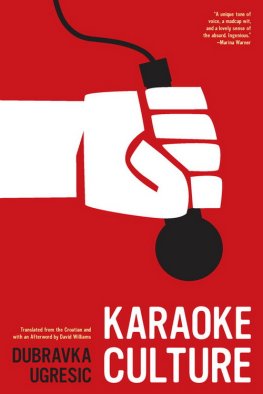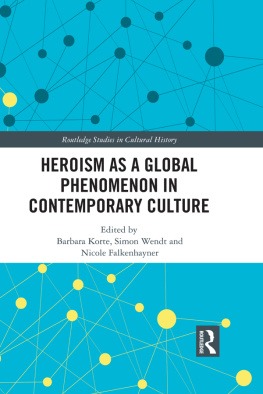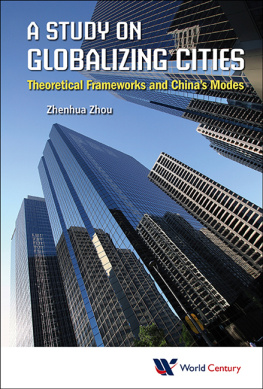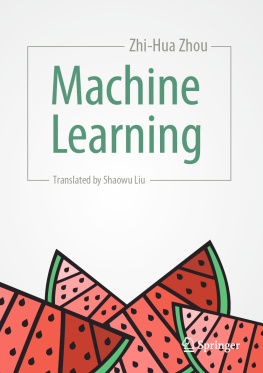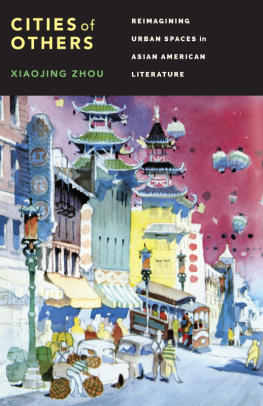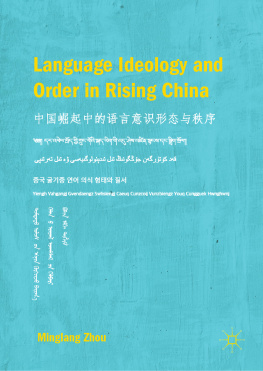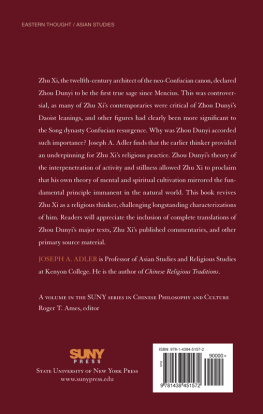Published by Reaktion Books Ltd
33 Great Sutton Street
London EC1V 0DX, UK
www.reaktionbooks.co.uk
First published 2007
Copyright Zhou Xun and Francesca Tarocco 2007
All rights reserved
No part of this publication may be reproduced, stored in a retrieval system, or transmitted, in any form or by any means, electronic, mechanical, photocopying, recording or otherwise, without the prior permission of the publishers.
Page references in the Photo Acknowledgements and
Index match the printed edition of this book.
Printed and bound in China by Toppan Printing Co. Ltd.
British Library Cataloguing in Publication Data
Xun, Zhou
Karaoke: the global phenomenon
1. Karaoke
I. Title II. Tarocco, Francesca
306.4842
eISBN: 9781780232409
Introduction
Over Christmas 2002, karaoke machines were selling like hot cakes in Britain, and Woolworths stores constantly ran out of stock. From Paris to Toronto, from Iceland to Brazil, even in the heights of the Pyrenees, people are passionate about karaoke. If Bob Costas thought it ridiculous to find himself reading on NBC the news story Lebanon has never won an Olympic medal, but recently a Lebanese woman won the Karaoke World Championship in Finland, singing the 1980s classic Fame, The world is now witnessing a massive karaoke explosion: it is no longer exclusively an Asian phenomenon, but rather a global phenomenon.
Although many like to view it as an essentially Japanese product, karaoke in the United States bears little resemblance to karaoke in Japan. Like many other phenomena usually defined as global, from the internet to McDonalds, karaoke is complex. It blurs many existing boundaries, definitions and categories developed by specialists in cultural and media studies. It does not quite fit into any of the models that anthropologists and ethnomusicologists have tried to deploy. It challenges the view, popularly held in global studies, according to which the USA stands at the centre of global relations, thus equating globalization with Americanization.
For centuries a constant flow of people, ideas and things have moved across the face of the earth and the oceans. In modern times the frequency and speed of such movements have increased greatly with the advent of a global economy, assisted by modern technologies and, of course, by the global network. While all roads might lead to America, the traffic has never been one way. The invasion of the Big Mac and Coca-Cola is only one side of the story, since the world today, from New York to Marrakech, even to a remote Druze village in occupied Palestine, is packed with things made in China. The explosion of karaoke around the world shows that global traffic goes in all directions, crossing multiple spaces, at different levels, through different media: from cable wires to the internet, from long-distance tour buses to city taxis, on boats or on aeroplanes, from giant television screens to tiny mobile phones, through the global market or the illicit traffic in counterfeits. Karaoke thus has no centre or periphery, but is rather an interactive global network with constant movement.
The notion of hybridity and the illusion of authenticity are in most cases invalid. Transformation and adulteration have always been the norm: the indigenous or the original are but recent inventions. The development and changing face of karaoke in different parts of the world clearly illustrates this. From the islands of the Philippines to the highlands of Canada, local people are endlessly incorporating karaoke into their existing cultural traditions or ways of living.
As a complex, multifaceted, global phenomenon, karaoke should not be conceived in a linear fashion. As John Urry argues, a minor cause may lead to an unprecedented major effect, and the same cause can in specific circumstances produce quite different outcomes. Many factors or agents have contributed to karaokes spread, its adaptation and inculturation. This is not to discard historical continuity, although without careful examination of each specific set of circumstances it would be unhelpful, and mostly inaccurate, to presume historical continuity as the uniform cause of any historical event. In the case of karaoke, the small innovation that put karaoke online has led to its becoming part of a global network. More importantly, it has changed its nature, since it is no longer a mere machine or a simple act of singing. The network has turned karaoke into a complex organizational system, within which the necessary skills and structures have developed to allow even more technological innovations and potential developments.
Furthermore, the spread and development of karaoke challenges the trickle down theory. In the most fluid fashion, karaoke moves in and out of cultures and spaces, from youth to church, from working-class pubs to fashionable clubs, from charities to brothels, from streets to schools, from cities to villages. There are limitations and there are boundaries some governments have even attempted to ban karaoke. And yet, like a fluid, karaoke can take different forms as it rushes and trickles through any particular region, mostly managing to overcome all obstacles.
In time and space, karaoke can mean very different things to different people. It is a machine, a tangible object, a cool thing to have and do, a status symbol. It is an illusion, a fantasy dream in an artificial chamber. While it encourages egalitarianism in countries like America (If the boss can make it out like Paul McCartney, so can I), in cultures based on a hierarchical system, such as East Asia, it has served as an instrument of homemade democracy. There it is even used as a method for learning foreign languages and improving literacy: a Spanish language teacher in Taiwan reported how, after he started to use the sing-along method, pupils rushed to sign up to his class to enjoy a two-hour singing session in Spanish. As a popular medium, karaoke can be an illicit activity or a state-sponsored event. It may be used both as a tool for organizational propaganda or as a means for self-expression. It is a mass culture without being mainstream; there are a few karaoke celebrities yet all who participate are stars. It may be an entertainment, or a way of life; a pleasure, or a real pain. While some have argued that, as a form of modern technology, the karaoke machine can enslave individuals and create alienation, others claim that karaoke has liberated them from the DVD and computer screen and turned them into social animals. China, where a large percentage of the population spent much of its time in recent years watching DVDS, has seen a resurgence of karaoke culture driven by those who feel that karaoke is a more sociable thing to do.
As well as being individuals, participants in karaoke belong to complex interacting social groups, so it may not be helpful to use oversimplified terms such as ethnicity and multiculturalism. Morlam karaoke in Southeast Asia, for instance, even if rooted in the traditional music of the Issan people, is certainly not ethnic music but a popular music widely loved by the urban youth in Bangkok. On the other hand karaoke culture in Britain shows that multiculturalism is by and large a fabricated myth. Most of Britain remains extremely parochial, even in cosmopolitan London, where there is a limited amount of social and cultural mixing. For the majority of British people, however, multicultural means nothing more than consuming the same brands, eating in the latest in restaurants, hanging out in the coolest bar, listening to a mishmash of world music, singing karaoke in an artificial paradise and pretending to be someone you are not.




